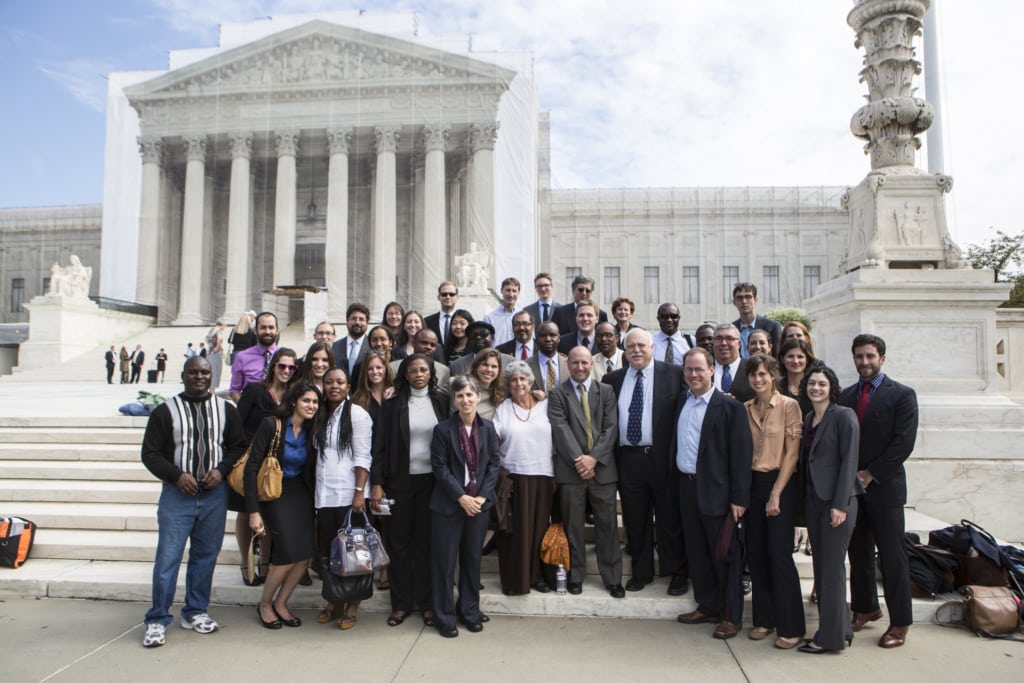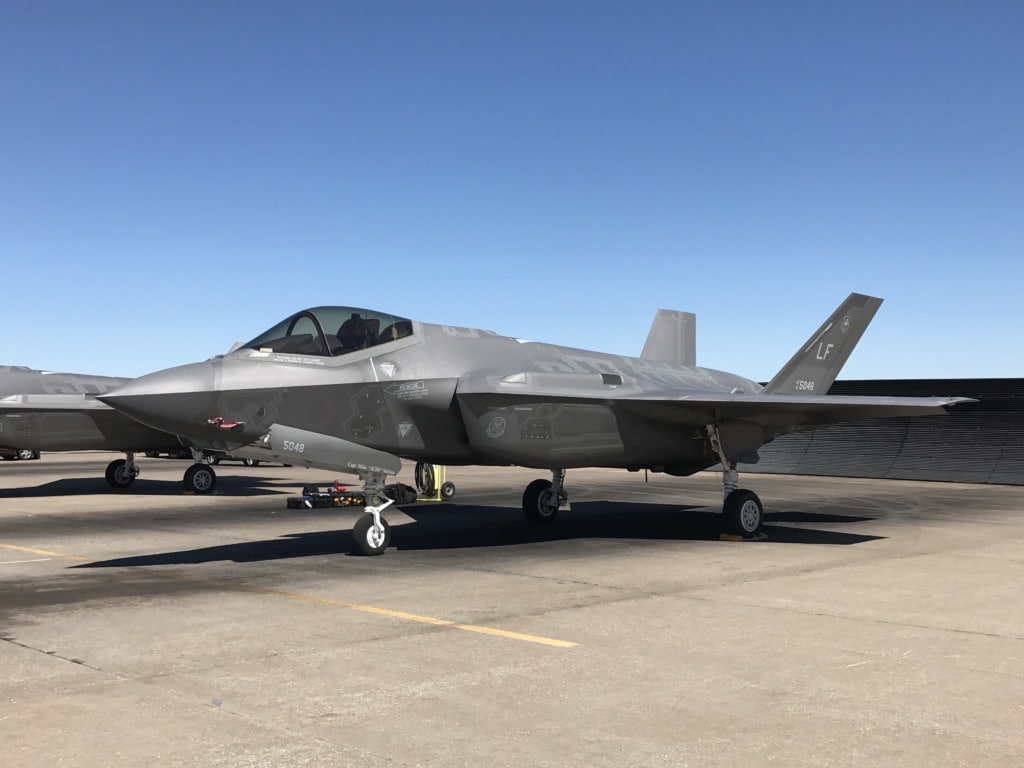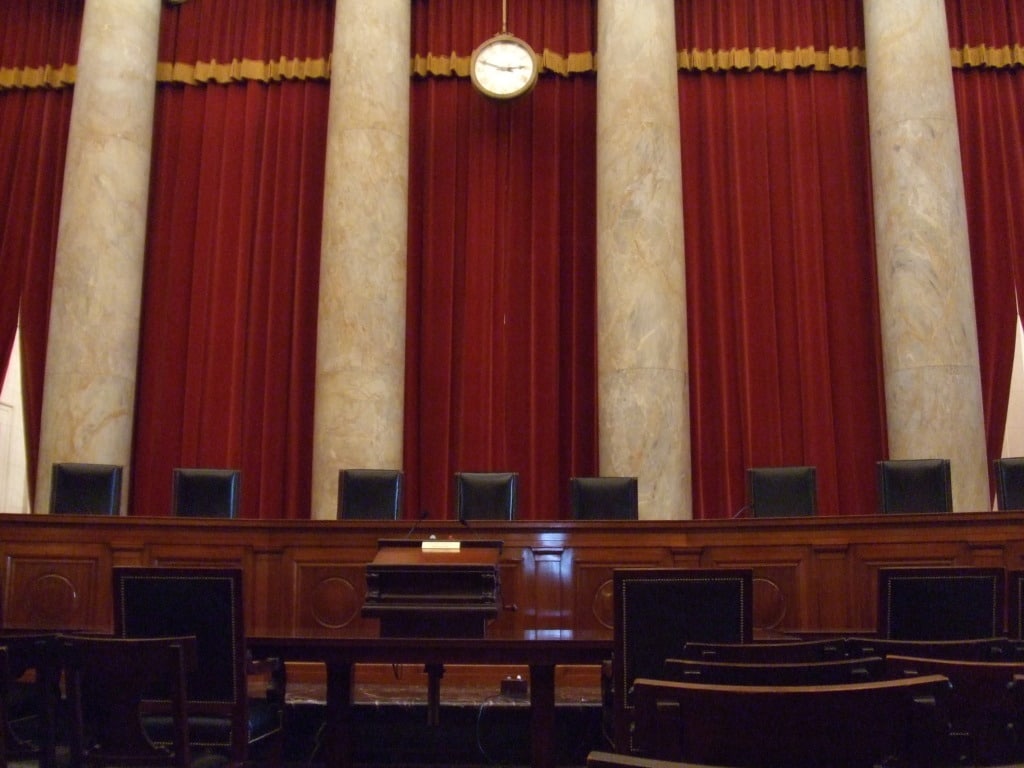Throwback Thursday: Kiobel v. Royal Dutch Petroleum Co.
Ten years ago this week, the U.S. Supreme Court handed down its decision in Kiobel v. Royal Dutch Petroleum Co., applying the presumption against extraterritoriality to the implied cause of action for human rights violations under the Alien Tort Statute (ATS). In Kiobel, the Court began to whittle down the cause of action it had…
Continue ReadingPreview of Supreme Court Argument in Civil RICO Extraterritoriality Case
On April 25, the U.S. Supreme Court will hear oral argument in Yegiazaryan v. Smagin and CMB Monaco v. Smagin, which ask how RICO’s private right of action applies to intangible property, in this case a California judgment confirming a foreign arbitral award. The cases have important implications not just for civil RICO but also for international arbitration….
Continue ReadingChina’s Draft Law on Foreign State Immunity Would Adopt Restrictive Theory
On the question of foreign state immunity, the world was long divided between countries that adhere to an absolute theory and those that adopted a restrictive theory. Under the absolute theory, states are absolutely immune from suit in the courts of other states. Under the restrictive theory, states are immune from suits based on their…
Continue ReadingThrowback Thursday: Professor William Casto on the Origins of the Alien Tort Statute
In the spring of 1986, Professor William Casto published an article in the Connecticut Law Review entitled The Federal Courts’ Protective Jurisdiction Over Torts Committed in Violation of the Law of Nations. Casto’s article was the first to explore the origins of the Alien Tort Statute (ATS) in detail, and despite the many law reviewpages…
Continue ReadingOfficials Who Kidnapped Hotel Rwanda Hero Are Not Immune from Suit
In 1994, Paul Rusesabagina was the manager of a hotel in Kigali, Rwanda. During the genocide, he sheltered 1,268 Hutu and Tutsi refugees, all of whom survived. His courage inspired the film “Hotel Rwanda,” and in 2005 President Bush awarded him the Presidential Medal of Freedom. Rusesabagina became a human rights advocate and vocal critic…
Continue ReadingHappy Birthday to TLB!
On March 28, 2022, TLB published its first post. Since then, we have published 245 more. Over the past year, the site has received more than 32,000 visitors from 82 different countries. Roughly half of those readers are based in the United States. Our most frequent non-U.S. visitors are based (in rough order) in (1)…
Continue ReadingCert Petition Highlights Circuit Split on Sovereign Immunity for Military Purchases
The Foreign Sovereign Immunities Act (FSIA) immunizes foreign states from suit in federal and state court. But it makes an exception for actions based on a foreign state’s commercial activities. The Supreme Court’s leading decision interpreting this exception is Republic of Argentina v. Weltover (1992), where the Court unanimously held “that when a foreign government…
Continue ReadingSupreme Court Focuses on Consumer Confusion in Extraterritorial Trademark Case
Yesterday, the Supreme Court heard oral argument in Abitron Austria GmbH v. Hetronic International, Inc. The question before the Court is when the federal trademark statute, known as the Lanham Act, applies to the use of trademarks outside the United States. The respondent, a U.S. company that makes radio remote controls for heavy construction equipment,…
Continue ReadingPreview of Supreme Court Argument in Extraterritorial Trademark Case
On March 21, the U.S. Supreme Court will hear oral argument in Abitron Austria GmbH v. Hetronic International, Inc. to decide when the federal trademark statute, known as the Lanham Act, applies to the use of trademarks outside the United States. The stakes are high—not just for the parties arguing over a $90 million damages…
Continue ReadingThe Impossibility of Serving Russian Defendants
The Hague Service Convention is a blessing and a curse. By obligating each country that has joined to designate a Central Authority for effectuating service of process on defendants within its territory, the Convention provides a means of service that respects foreign sovereignty, complies with federal rules, and helps ensure the enforceability of resulting judgments….
Continue Reading








